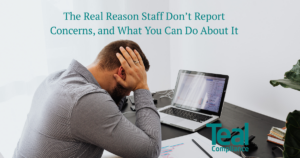There are four emerging risks that the SRA has identified in the Sectoral Risk Assessment which was published in July 2023. One of these emerging risks is economic pressures. Here, we explain the SRA’s update on economic pressures, the associated risks, and advice on what actions you should take.
What impact do economic pressures have on AML?
We’ve had economic pressures ever since the Covid-19 pandemic. More recently, we’ve seen the cost of living crisis, and increases in pay rises to cope with inflation. It’s been a difficult time for many individuals and businesses and the landscape is still uncertain.
When there are economic pressures, there are two risks to AML, and the SRA in the Sectoral Risk Assessment is calling both of these out.
1. Temptation to reduce costs in AML compliance
The first risk is the temptation to reduce costs in AML compliance. The SRA don’t want to see this occur, and this goes for any changes you make to your policies and procedures. If the SRA believes you’re doing less, and you have made cost cuts in this area, you need to be ready to explain why you think it’s still effective.
If the SRA has records of how many people you’ve got in your AML function, and they carry out an inspection and find you’ve now got a fraction of that number, they’ll be interested to find out why that’s the case.
One question we’ve been asked about saving costs is whether or not firms should introduce a centralised CDD team. It’s important to be aware that introducing a centralised team very rarely saves costs. Although it increases compliance considerably, and you get a better CDD, its unlikely to save you costs.
The SRA, however, is concerned about firms having centralised teams. They think that having a centralised team will take fee-earners away from their compliance responsibilities. This is particularly the case when centralised teams are involved in curating or signing off matter risk assessments, or keeping the matter risk assessments on a system that the rest of the business can’t see. It’s the lawyers’ responsibility to carry out risk assessments, as they have conduct of the matter on a day to day basis, and it’s the lawyers that will need to be able to explain the risks to auditors or regulators.
In a nutshell, the SRA don’t want you to be scrimping on costs. Make sure your staff are resourced properly and that includes your money laundering compliance officer (MLCO), money laundering compliance officer (MLCO).
2. 'Baddies' changing tactics
The second thing that happens when there are economic difficulties is the ‘baddies’ change tactics. When law firms have busy periods, such as a stamp duty holiday, scammers can try to hide in plain sight. This is because, everyone’s far too busy to check properly about source of funds/source of wealth, and the baddies will take advantage of this. This may lead to transactions getting through that wouldn’t in a normal working environment.
When it’s extremely quiet, baddies can start to take advantage of fee-earners’ concerns about billing targets. In some ways they’re very sophisticated, but in other ways their approaches are often quite simple. So, they often come along in quieter times, particular in the area of property, where they’ll approach you with deals that you might otherwise turn down in a normal set of circumstances.
The same applies for corporate deals. Corporate deals can dry up in tough economic times and they’ll target lawyers with deals that would normally be turned away at the matter risk assessment stage.
What action should be taken to mitigate the risks of economic pressures?
Firstly, consider what you’re spending on AML. Is that the right amount? If there are any pressures to reduce what your spend is, especially if you’re bringing in technology and you don’t know how the technology works, take the time to reconsider this. If you’re reducing costs or resources, ensure you document this thoroughly to say why you’re satisfied that it won’t impact on the effectiveness of your AML programme.
Secondly, remind your property and corporate teams that during this time, baddies may be presenting riskier deals in order to take advantage of their need to generate business. It’s important that they understand the risks of money laundering, that they’re able to spot it, that they are honest in their matter risk assessment, and that they turn down things that look too good to be true.
From a compliance point of view, you might want to do some auditing and matter risk assessments to make sure that risks are being properly identified and documented.
Get in touch
At Teal Compliance, we’re here to support your journey towards regulatory and AML compliance.
If you’re looking to ensure that you, your firm and your clients are safe, simply contact our experts today.




